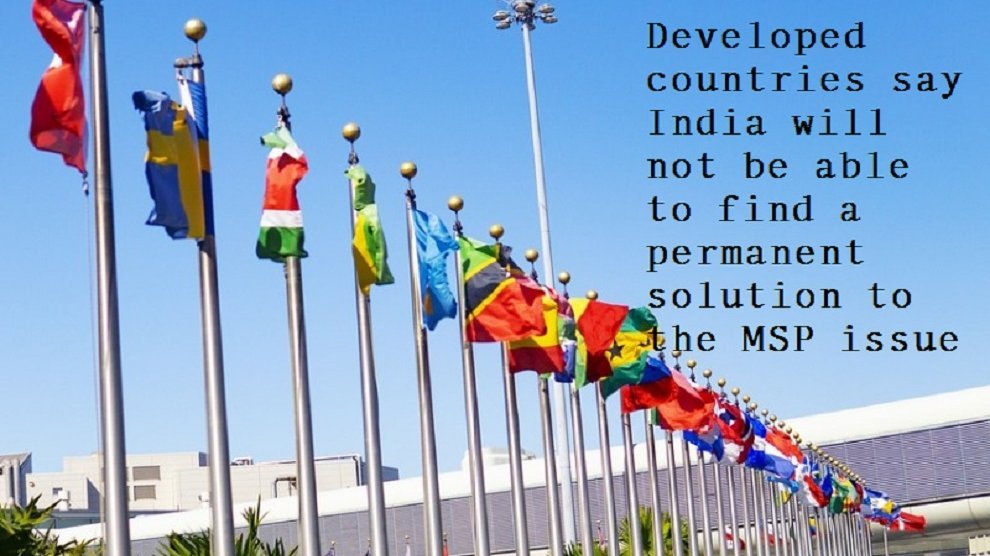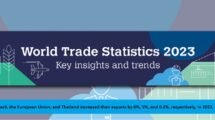According to a Geneva-based official, India’s attempt to obtain a permanent solution on public stockholding and MSP pay-outs at the WTO Ministerial Conference (MC 12) in November this year has hit a snag, with some developed nations, including Canada, the EU countries, and Australia, stating that differences remain too wide for an agreement to be reached within the available time.
New Delhi, on the other hand, has stated that it will create an alternative paper on an independent permanent solution with less onerous transparency standards in collaboration with China, Indonesia, the Philippines, and Nigeria.
Also Read: Union Govt announced a rise MSP of key Kharif crops by 4-5%
‘Not only the group of developed members but also the facilitator for the discussions on Special Safeguard Measures (SSM), Renata Cristaldo Oviedo from Paraguay, stated that no conclusion could be expected at MC12 due to political and technical complexity. However, the Chair of the discussions stated that she is dedicated to assisting members in bridging the gaps and will schedule additional consultations with members,’ the trade official stated.
WTO regulations
At the moment, the WTO regulations on farm subsidies are skewed against developing nations like India, which has a high number of poor farmers to support, because Minimum Support Price (MSP) payments are included in the forbidden subsidies, which cannot exceed 10% (de-minimis threshold) of the value of produce. India and the G-33 group of developing countries want MSP to be removed from the list of trade-distorting subsidies. Furthermore, the reference price for calculating subsidies is set at current world prices in 1986-88, which India claims must be revised.
At the Bali Ministerial Conference (MC 10), India was successful in obtaining a peace clause that stated that violations of subsidy levels would not result in sanctions against member countries until a lasting solution to the issue of public stockholding was found (preferably by 2017). However, there are so many conditions and paperwork tied to it that developing countries fear it would be rendered ineffective if the subsidies are challenged.
Also Read: Centre ruled out abolishing farm laws but ready to resume talks on issues
‘India has already breached the de-minimis threshold for rice, while some countries claim it may have also done so for wheat and cotton and are demanding further documentation.’ It is obvious that a lasting solution must be found immediately if further harassment is to be avoided,’ a government official stated.
Paper of choice
The government official added that in the options paper on a standalone permanent solution that India is working on, there will be suggestions to lessen the transparency burden that is being placed on developing countries that are running public stockholding programs and providing MSP to their farmers.
Also Read: What is the purpose of MSP for the 2021-22 Kharif season crops?
The MC 12 is set to take place in Geneva from November 30 to December 3, 2021, with members hoping to secure agreements on the elimination of unsustainable fisheries subsidies and the control of agricultural subsidies.


















Add Comment